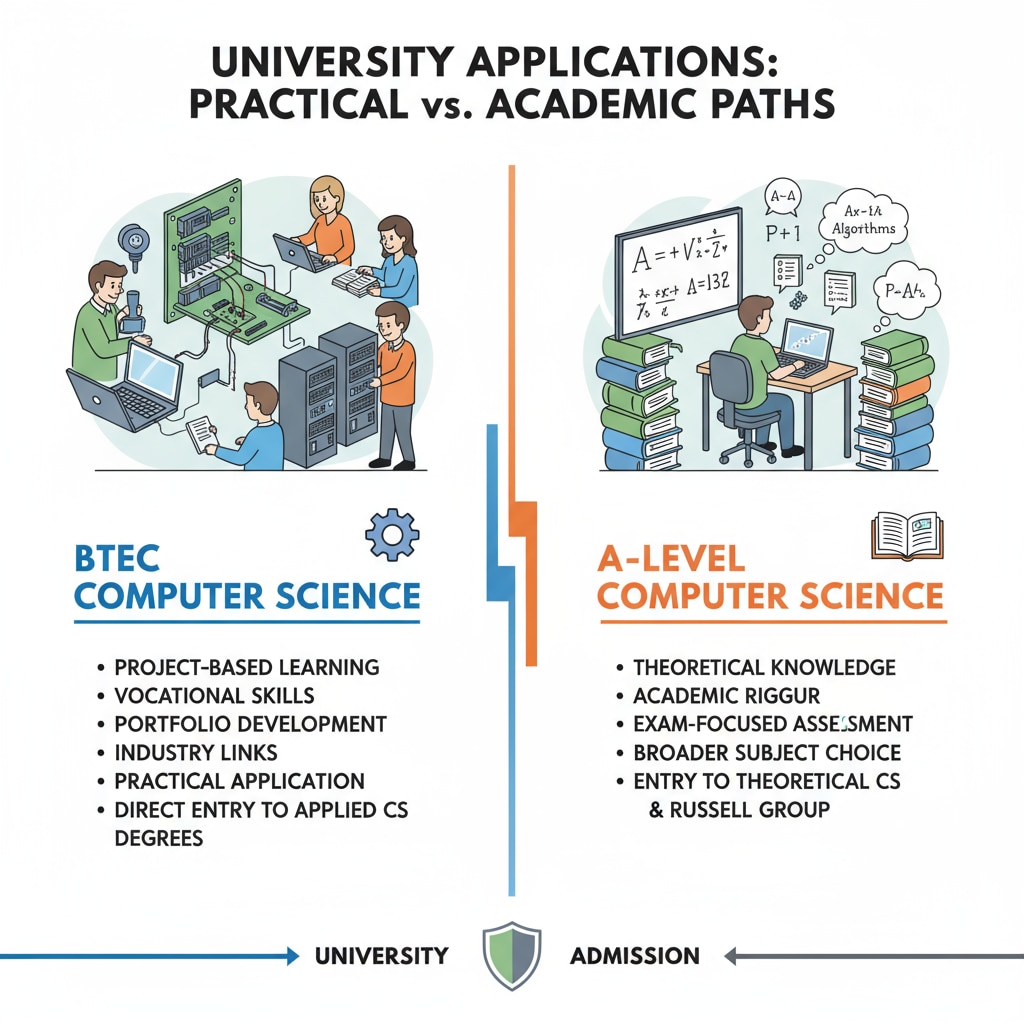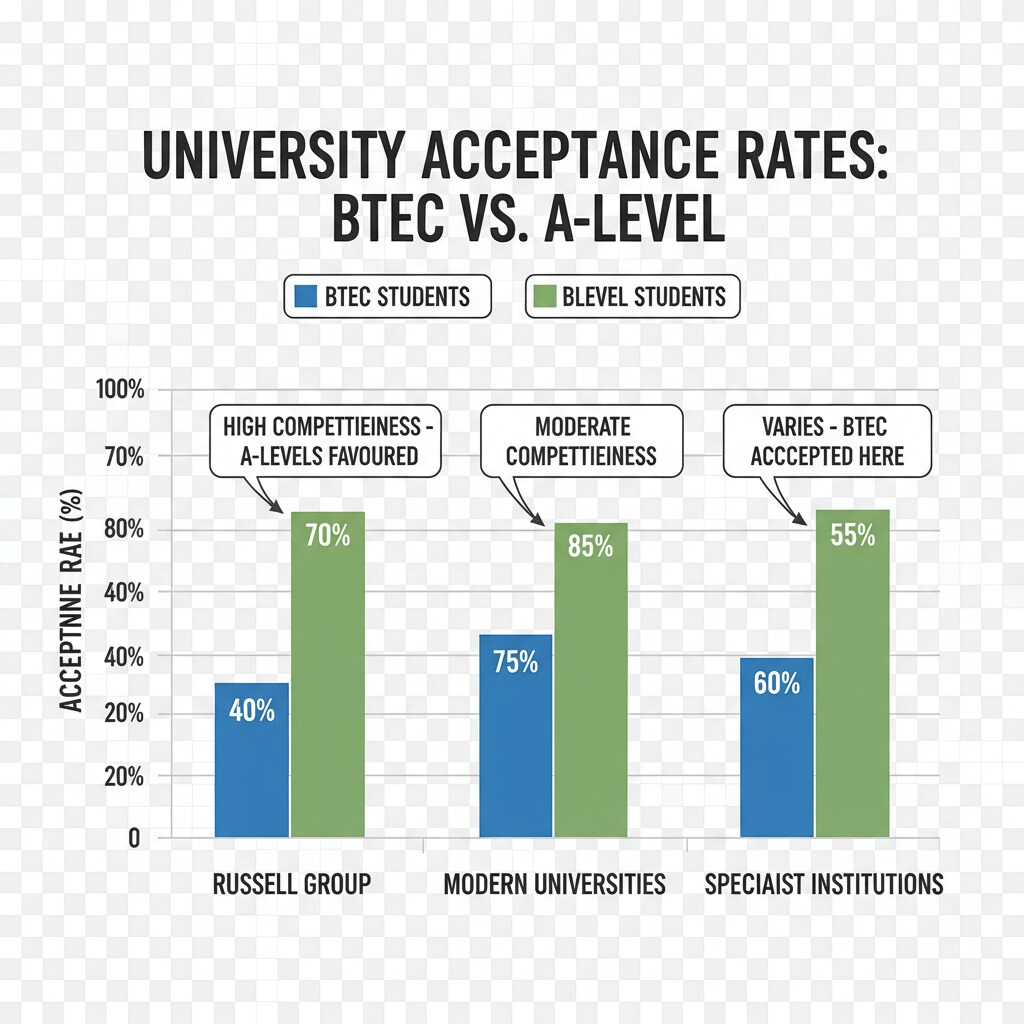When it comes to applying for higher education in the field of computer science, students often face a crucial decision: choosing between BTEC Computer Science qualifications and A-levels. This choice can significantly impact their university application competitiveness. Let’s take a closer look at the nuances and how students can make the most of their options.

The Basics of BTEC Computer Science and A-level
BTEC (Business and Technology Education Council) Computer Science qualifications are vocational in nature. They focus on practical skills and real-world applications, providing students with hands-on experience in areas such as programming, software development, and network management. For example, students might work on projects that simulate real business scenarios, giving them a taste of what it’s like to be in the industry.
A-levels, on the other hand, are more academic. They cover a broader range of theoretical knowledge in computer science, including algorithms, data structures, and computer architecture. A-level courses are often more structured and exam-oriented, requiring students to demonstrate a deep understanding of the subject matter through written examinations. A-level details on Wikipedia
Competitive Edge in University Applications
In terms of university applications, A-levels are generally more recognized and preferred by some traditional universities. The academic rigor and depth of knowledge associated with A-levels can make students stand out. However, this doesn’t mean BTEC students are at a disadvantage. Many modern universities are increasingly appreciating the practical skills that BTEC students bring. For instance, in computer science courses that have a strong industry focus, BTEC students’ hands-on experience can be highly valued.

BTEC students can enhance their competitiveness by participating in extracurricular activities. This could include joining coding clubs, participating in hackathons, or contributing to open-source projects. These activities not only showcase their passion for computer science but also demonstrate their ability to work in a team and solve real problems. Education insights on Britannica
When it comes to writing personal statements for university applications, both BTEC and A-level students should highlight their unique strengths. BTEC students can emphasize their practical projects and the skills they’ve gained from them, while A-level students can focus on their theoretical understanding and research capabilities.
Readability guidance: As seen above, we’ve used short paragraphs to clearly present the key points. For each main idea, we’ve provided a simple explanation and used examples to make it more understandable. Transition words like ‘however’ and ‘for instance’ have been used to make the flow of the text smoother.


